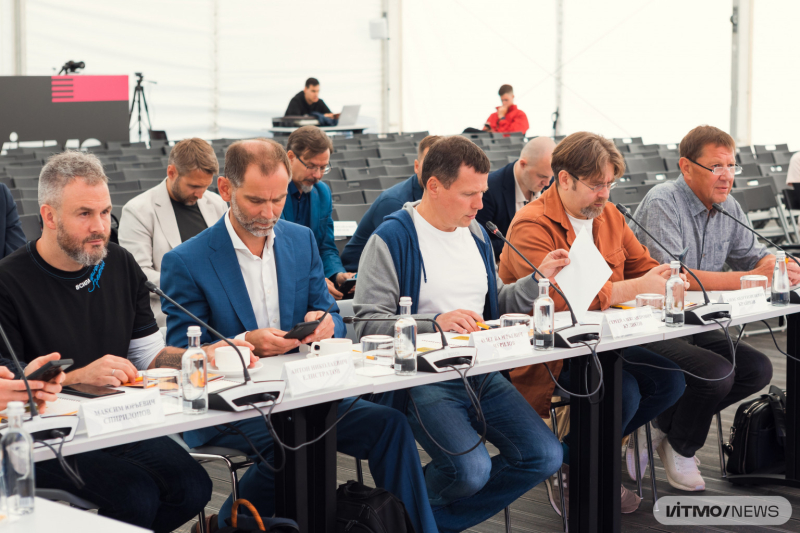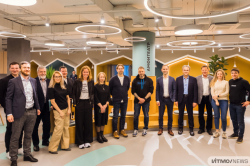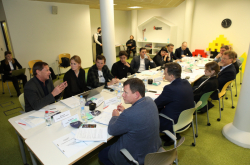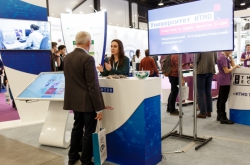Implemented practices
The choice of the session venue was highly symbolic. The Council had its regular meeting on the site of ITMO Highpark – the future world-class research, education, and innovation center that embodies the university's ideals of frontier research, IT-aided solutions, people-oriented science, open code, dynamics of development, academic freedom, and business thinking.
The university has been actively moving towards its goals, always on the lookout for new ways to stay true to its development model and follow its own values not in words, but in deeds. According to Daria Kozlova, ITMO’s First Vice Rector and head of its 2030 Development Strategy, the key drivers for university growth are principal investigators (PIs), principal engineers (PEs), and heads of educational programs. At the moment, the university is considering involving PIs in the university management and its development initiatives.
As for the latter, ITMO launched several joint programs with IT leaders this year – Tools for Software Development and Analysis (YADRO), Web Scale Systems (VK Education), and Highload Systems (Yandex). In 2023, the university’s joint programs with industry leaders were the biggest hit among the applicants – 5,000+ applications (out of 13,000+ overall) were submitted for the corporate Master’s programs.
With the project-oriented approach and electives at the university, students are free to build their own learning paths and study on real-life cases. After completing their studies, they can hold mid- and senior-level positions and become team leaders at partner companies. For instance, around 80% of graduates of the program Software Engineering, which was co-created with Gazprom Neft in 2022, found employment within the abovementioned roles.
PIs and PEs engage students in cutting-edge studies and applied projects supported by the state or Russian companies. As of now, six flagship projects, which are implemented under the aegis of ITMO, generate combined annual revenues in excess of up to 30% of the university's total budget (11 billion rubles in 2023).
These are:
- Projects associated with ITMO’s 2023 Development Strategy;
- Advanced Engineering School;
- Research Center “Strong AI in Industry”;
- National Center for Cognitive Research;
- Gazprom Neft-ITMO Research and Education Center;
- National Center for Quantum Internet.
Though the university collaborates with major companies, questions remain as to how to develop existing and set new partnerships, move from a customer-performer to a partner-partner model, and, last but not least, be on the same page with the industry.
“Being innovative and proactive, we are, nevertheless, detached from the business processes of our potential and current industrial partners. We speak different languages, we plan and organize research and educational activities in our own ways, and our corporate cultures are nothing alike. And yet we strive to grow with the industry – that’s the only way to achieve sustainable development,” noted Daria Kozlova.
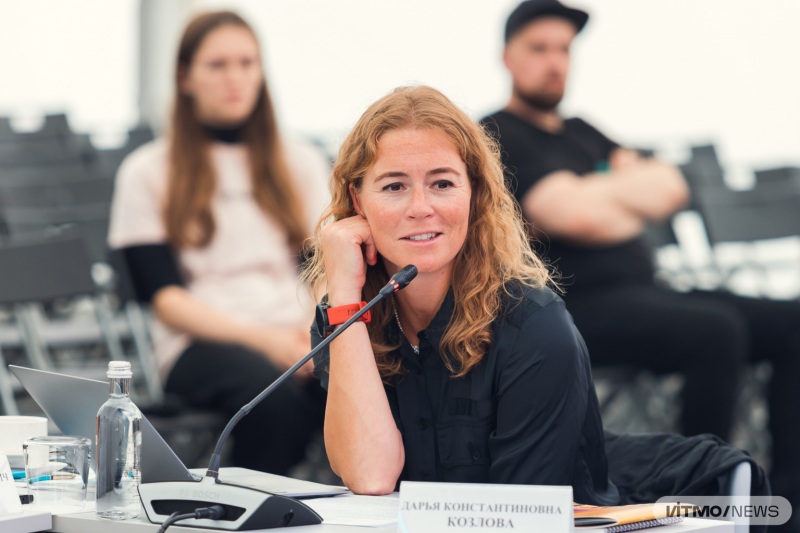
Daria Kozlova. Photo by Dmitry Grigoryev / ITMO.NEWS
Collaboration strategies
New format
One solution might be to arrange joint product teams, made up of representatives of both worlds, who will share common product visions, objectives, and performance metrics. As noted by Andrey Belevtsev, the Senior Vice President and the Chief Digital Officer of the Technology Unit at Sberbank, this initiative will help unite groups of varied approaches.
“If corporations and universities collaborate through joint teams, students will have fewer questions: they will understand the differences between junior and mid-level positions and will be unlikely to be undecided on their career post-university. They will come to make an epic product in a great team, not even a company, and know how they benefit their project,” highlighted Andrey Belevtsev.
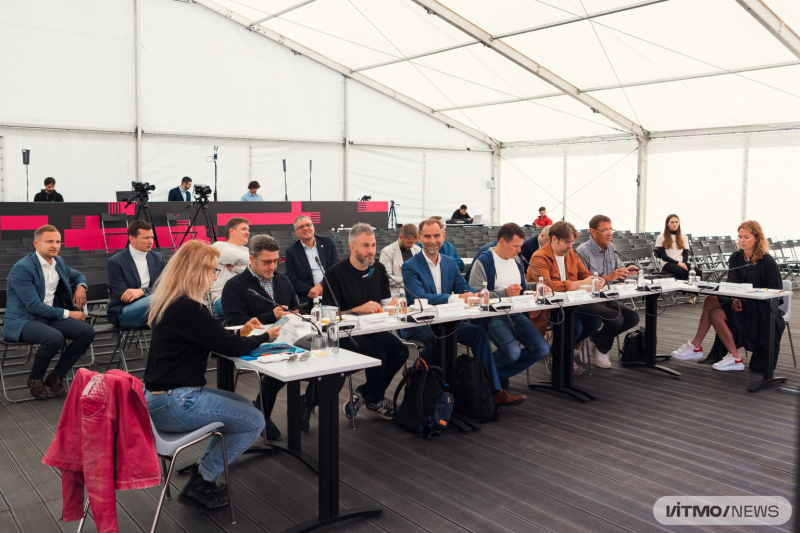
ITMO's Supervisory Council. Photo by Dmitry Grigoryev / ITMO.NEWS
Not only students but also lecturers should be a part of corporate culture and activities. One way to do that is by doing internships at partner companies, suggested Olga Filatova, an independent member of the board of directors at HeadHunter. This way, they will stay on top of industry trends and enhance their teaching.
Self-reflection
Co-founder of Netology Maksim Spiridonov believes that the way to rid yourself of doubt when working on a project is to ask yourself particular questions.
“In the movie of my youth Deja Vu (a 1990 Soviet-Polish comedy thriller - Ed.), the protagonist has no idea what jazz is and so he keeps asking if it’s syncopation. That is the state I wish everyone at ITMO to be in – constantly reflecting on whether a new idea is business-oriented enough, what can be done differently, and what can make it better. Questioning has no end, and that’s okay,” noted Maksim Spiridonov.
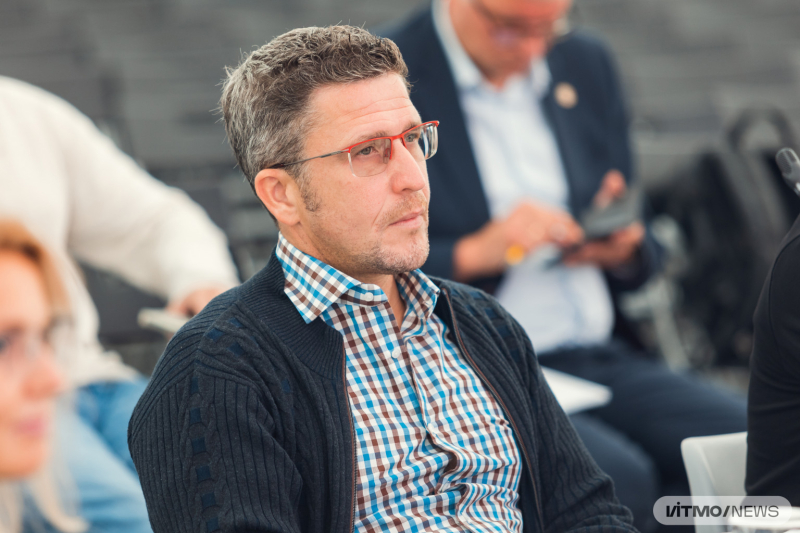
Maksim Spiridonov. Photo by Dmitry Grigoryev / ITMO.NEWS
Performance metrics
Alexander Krainov, the director for development of artificial intelligence technologies at Yandex, is of the opinion that the university's activities and accomplishments, such as the number of publications in peer-reviewed journals or their citation impact, extrabudgetary funds for research received, as well the number of mid- and senior-level specialists among graduates and their average salary, can be evaluated with the help of unbiased metrics, both traditional and new ones.
“Today, we no longer wait for students to turn into mid-level specialists in the fourth year, we find them among third-years who land an internship at our company and then stay with us afterwards. Though they might not advance sufficiently within two years, their careers will take off, just like rockets, in five years. Say, we invited an intern to take a junior-level position at our company, yet they turned us down because they had a technical director offer on the horizon. This illustrates the need for hand-picking market leaders and introducing a metric that will reflect how many students work at these companies and what positions they hold,” explained Alexander Krainov.
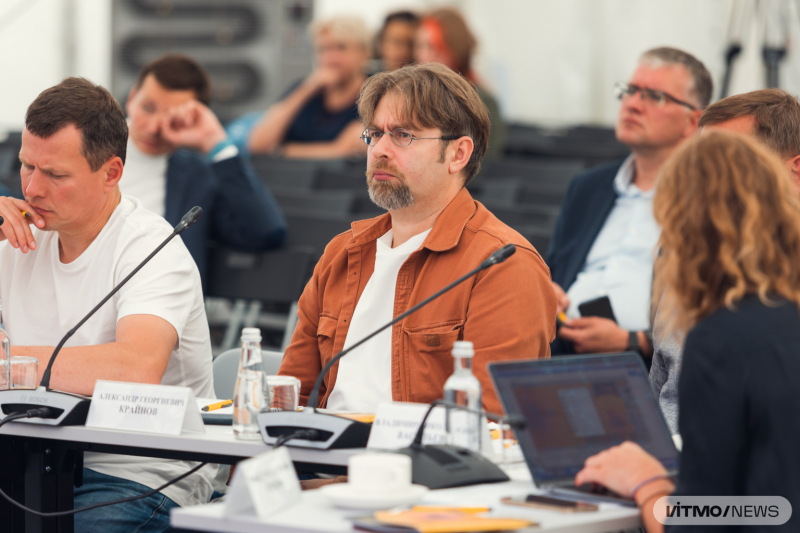
Alexander Krainov. Photo by Dmitry Grigoryev / ITMO.NEWS
The Supervisory Council is one of ITMO’s main administrative bodies, the members of which hold a wide array of responsibilities, such as contributing to and approving the university’s development strategy and its results, making changes to the charter, and planning ITMO’s financial and economic activities.
Members of the Supervisory Council:
- Sergei Kulikov, the chairman of the board at RUSNANO and the head of the Fund for Infrastructure and Educational Programs (FIEP);
- Andrey Belevtsev, the Senior Vice President and the Chief Digital Officer of the Technology Unit at Sberbank;
- Aleksandr Dyukov, the Chairman of the Management Board at Gazprom Neft;
- Anton Elistratov, the CEO of Samolet Group;
- Darya Kiryanova, the Deputy Minister of Science and Higher Education;
- Alexander Krainov, the director for development of artificial intelligence technologies at Yandex;
- Maksim Spiridonov, a co-founder of Netology.
- Elena Fedorova, the head of the Interregional Territorial Administration of the Federal Agency for State Property Management in St. Petersburg and the Leningrad Oblast;
- Olga Filatova, an independent member of the board of directors at HeadHunter;
- Oleg Churilov, the head of the Department for Development of Technology Entrepreneurship and Transfer at the Ministry of Science and Higher Education.
